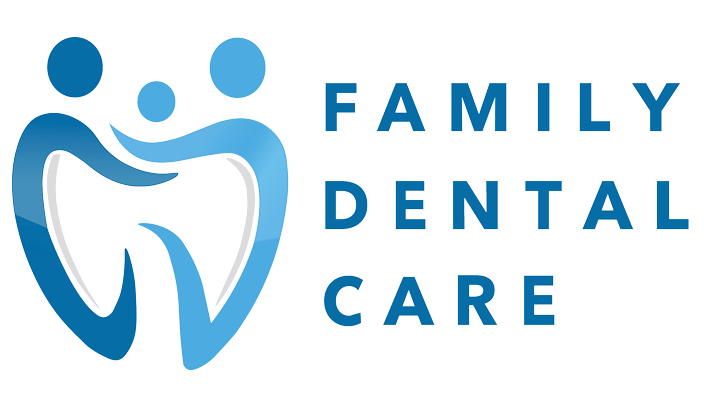Emergency Root Canal Therapy in St. Charles & Glen Ellyn, IL
Emergency Root Canal in St. Charles & Glen Ellyn, IL
Severe tooth pain doesn’t wait for convenient moments. If you need an emergency root canal to address severe tooth issues, we’re your team. Family Dental Care performs emergency root canals in St. Charles and Glen Ellyn, IL. Our experienced team provides prompt, compassionate emergency root canal therapy to help save your natural tooth. We specialize in making emergency root canal procedures as comfortable and stress-free as possible. You can count on us for all your dental needs.

What Is a Root Canal?
A root canal is performed to save severely damaged or infected teeth. Despite its intimidating reputation, modern root canal treatment is remarkably effective and comfortable, often providing immediate relief from severe tooth pain. When the pulp inside your tooth becomes infected or inflamed due to deep decay, trauma, or repeated dental procedures, a root canal becomes necessary to preserve your natural tooth. A root canal carefully removes the infected pulp, cleans and disinfects the tooth’s interior, and then seals it to prevent future infection.
What Is the Process of a Root Canal Treatment?
Knowing the steps of a root canal gives patients the comfort they need to prepare for treatment. Our step-by-step root canal treatment includes:
- Preparation and Anesthesia: We begin by administering local anesthesia to completely numb the affected tooth and surrounding area. This ensures you experience little to no discomfort throughout the procedure.
- Tooth Isolation: A small rubber dam is placed around the tooth to keep it clean and free from saliva during treatment, creating an optimal sterile environment.
- Access Creation: A small access hole is carefully drilled into the tooth’s crown, allowing us to reach the infected pulp chamber and root canals.
- Pulp Removal and Cleaning: We remove the infected or damaged pulp from the tooth’s interior using specialized dental instruments. Each root canal is thoroughly cleaned, shaped, and disinfected to eliminate all traces of bacteria.
- Canal Filling: The cleaned root canals are filled with gutta-percha, a biocompatible rubber-like material that seals the space and prevents future bacterial infection.
- Temporary Restoration: A temporary filling is placed in the tooth as you heal and await your permanent restoration.
- Crown Placement: The temporary filling is removed, and a custom dental crown is placed to restore the tooth’s full strength, function, and appearance.
When Is a Root Canal Necessary?
Several symptoms and conditions indicate the need for emergency root canal therapy. The following include warning signs that you may need a root canal:
- Intense, persistent toothache that worsens when lying down
- Sharp pain when biting or chewing
- Pain that radiates to your jaw, ear, or neck
- Prolonged sensitivity to hot or cold temperatures
- Visible swelling in your face, neck, or gums
- Tender, swollen gums around the affected tooth
- A persistent pimple on your gums
- Darkening or discoloration of the tooth
- Cracked or chipped tooth exposing the pulp
- Deep cavity reaching the tooth’s interior
Types of Root Canals
Different situations require specific approaches to root canal treatment. The types of root canal therapy include:
- Standard Root Canal: The most common type, performed when infection or inflammation affects the tooth’s pulp. This comprehensive procedure addresses single or multiple root canals depending on the tooth’s location.
- Emergency Root Canal: When severe pain, swelling, or infection requires immediate intervention, emergency root canal therapy provides rapid relief while saving your natural tooth.
- Root Canal Retreatment: Sometimes a previously treated tooth may become reinfected. Retreatment involves reopening the tooth, removing old filling materials, and addressing new infection sources.
- Apicoectomy: A surgical procedure used when standard root canal therapy cannot resolve persistent infection. The tooth’s root tip and surrounding infected tissue are surgically removed and sealed.

Recovery After a Root Canal
Proper post-treatment care ensures successful healing and long-term tooth preservation. We recommend the following tips after a root canal:
- Immediate Aftercare (First 24-48 Hours): It’s important to take prescribed or recommended over-the-counter pain medications, avoid chewing on the treated tooth until permanent restoration, apply ice packs, and eat soft foods.
- Ongoing Care: Root canal-treated teeth can last a lifetime with proper care and a permanent crown. Maintain excellent oral hygiene with gentle brushing and flossing. It’s vital to maintain follow-up appointments, and reach out to us if you experience severe pain or swelling.
Other Dental Services We Offer
Family Dental Care provides comprehensive dental services for your family. Take advantage of our dental services, including:
Why Choose Family Dental Care?
When you need emergency root canal therapy, experience and expertise matter, Family Dental Care uses state-of-the-art equipment for accurate diagnosis and efficient treatment, including digital X-rays, rotary instrumentation, and precision microscopy. Our skilled dentists have extensive experience in emergency endodontic procedures, ensuring optimal outcomes and patient comfort. With offices in t. Charles and Glen Ellyn, we provide accessible emergency dental care throughout the area. Contact us today to schedule an appointment.
Emergency Root Canal FAQs
When do I need an emergency root canal?
You need emergency root canal therapy when experiencing severe, persistent tooth pain, significant facial swelling, or signs of serious dental infection. Don’t wait if you have throbbing pain that keeps you awake, extreme sensitivity to temperature, or visible swelling affecting your face or neck.
Is a root canal painful?
Modern root canal procedures are not painful. Local anesthesia ensures you feel no discomfort during treatment. Most patients experience immediate pain relief once we remove the infected pulp.
How long does an emergency root canal take?
Emergency root canal procedures typically take 60-90 minutes, depending on the tooth’s complexity and number of roots. Front teeth usually require less time than molars, which have multiple roots requiring individual treatment.
Do I need a crown after a root canal?
Yes, a crown is typically necessary after root canal therapy. The procedure removes significant tooth structure, making the remaining tooth more vulnerable to fracture. A custom crown restores the tooth’s full strength, function, and appearance.
Will I need multiple visits?
Most emergency root canals can be completed in one visit, providing immediate pain relief. However, a second appointment is necessary to place your permanent crown, usually scheduled within two to three weeks after the initial treatment.
